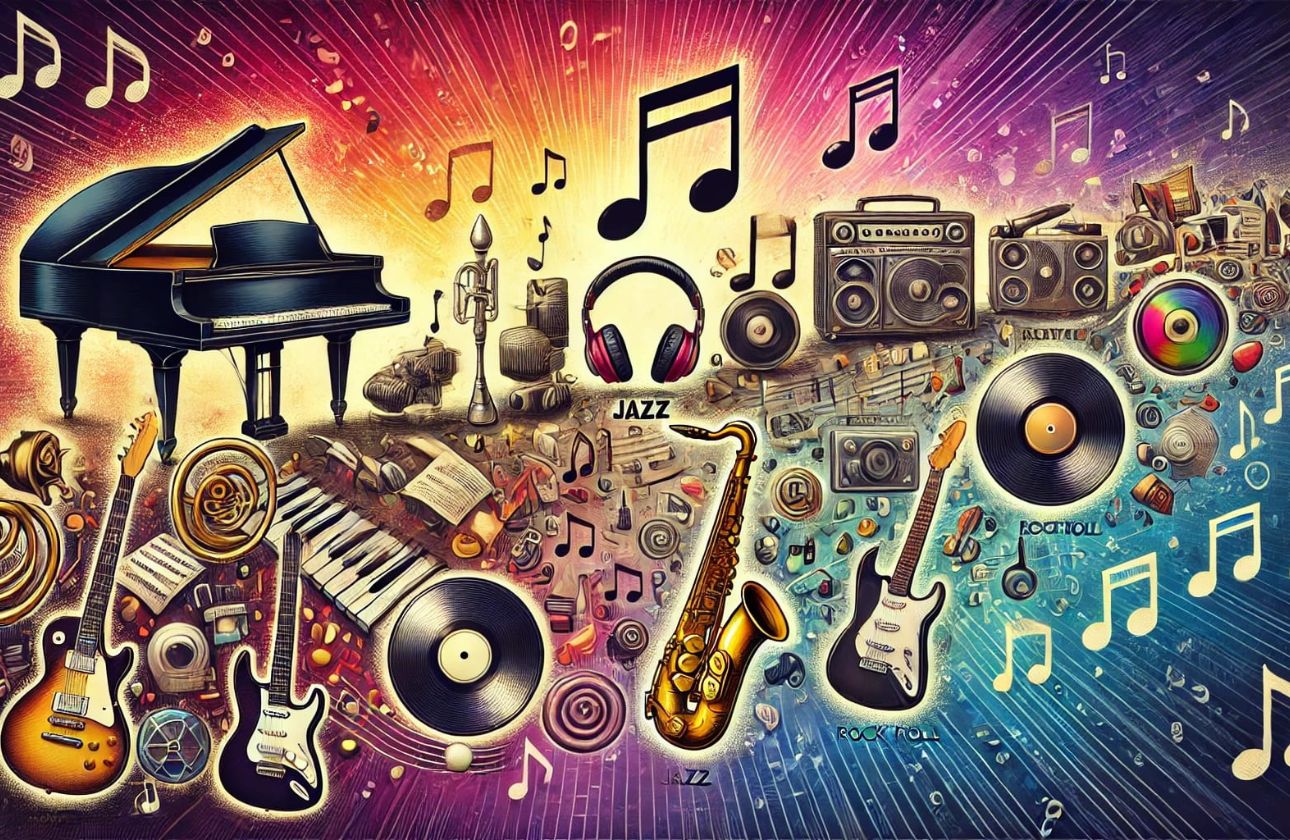Music is a universal language that transcends borders, cultures, and generations. Over the centuries, it has continuously evolved, giving birth to a rich tapestry of genres that reflect the social, political, and technological shifts of their times. Let’s take a melodic journey through the evolution of music genres and explore how each era shaped the soundtracks of history.
The Roots: Early Music and Classical Beginnings
1. Ancient and Medieval Music
Music’s origins can be traced back to ancient civilizations like Mesopotamia, Egypt, and Greece. Early forms of music often served religious and ceremonial purposes, using rudimentary instruments like drums and flutes.
In medieval Europe, Gregorian chants and early polyphony laid the foundation for Western classical music. These compositions were largely vocal, with a strong emphasis on spiritual themes.
2. The Renaissance Era
The Renaissance (1400-1600) was a period of musical innovation. Composers like Josquin des Prez and Palestrina embraced harmony and intricate compositions. Instrumental music gained prominence, with the lute and early keyboards becoming central to performances.
The Birth of Modern Genres
1. Baroque and Classical Periods
The Baroque period (1600-1750) introduced complex orchestral works by composers like Bach and Handel. The classical era that followed (1750-1820) brought a focus on balance and structure, exemplified by the works of Mozart and Beethoven.
2. Romanticism and Nationalism
The Romantic era (1800s) emphasized emotion and individualism. Composers like Chopin and Tchaikovsky incorporated folk melodies to celebrate national identity, paving the way for cultural fusion in music.
The Rise of Popular Music
1. Jazz and Blues
Emerging in the early 20th century, jazz and blues originated from African American communities in the United States. These genres introduced improvisation, syncopation, and soulful storytelling, influencing nearly every subsequent musical style.
2. Rock and Roll
The 1950s marked the explosion of rock and roll, blending rhythm and blues with a youthful energy that defined a generation. Artists like Elvis Presley and Chuck Berry revolutionized the music scene, making way for the British Invasion of the 1960s led by The Beatles and The Rolling Stones.
3. Hip-Hop and Rap
In the 1970s, hip-hop emerged in the Bronx as a cultural movement encompassing music, dance, and art. Rap became its defining element, offering a platform for storytelling and social commentary. Pioneers like Grandmaster Flash paved the way for modern icons such as Tupac, Nas, and Jay-Z.
The Digital Revolution and Beyond
1. Electronic Music
The advent of synthesizers and drum machines in the late 20th century gave birth to electronic music. Genres like techno, house, and EDM (Electronic Dance Music) dominated clubs and festivals, creating a global phenomenon.
2. Fusion and Globalization
In the 21st century, music genres have increasingly blended. From Latin pop’s global ascent, led by artists like Shakira and Bad Bunny, to Afrobeat’s influence on mainstream music, globalization has created endless opportunities for genre experimentation.
3. Indie and Alternative Movements
Indie and alternative music have offered a platform for artists seeking creative freedom. These genres often thrive on digital platforms, bypassing traditional gatekeepers and connecting directly with niche audiences.
The Power of Streaming and AI
Today, streaming services like Spotify and Apple Music have revolutionized how we consume music. Algorithms curate personalized playlists, introducing listeners to genres they might never have discovered otherwise. AI tools are even beginning to compose music, raising intriguing questions about the future of creativity.
The evolution of music genres is a testament to humanity’s creativity and adaptability. Each genre carries the echoes of its time, reflecting societal changes and technological advancements. As we look ahead, one thing is certain: music will continue to evolve, inspiring and connecting people across the globe. What will the next chapter in music history sound like? Only time will tell.




Comments (0)